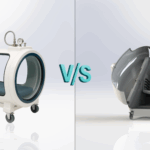Hypothyroidism (under active thyroid)
The ability of Hypothyroidism to mimic a number of medical conditions originates in the vast functions of the thyroid hormones, which are reduced or absent in this case. The functions of thyroid hormones include modulation of carbohydrate, protein and fat metabolism, vitamin utilisation, mitochondrial function, digestive process, muscle and nerve activity, blood flow, oxygen utilisation, hormone secretion and sexual and reproductive health to mention a few. Thus, when the thyroid hormone content gets out of balance, systems covering the whole body are affected, and that’s why hypothyroidism can look like other diseases. Conversely, sometimes other conditions can be mistaken for hypothyroidism.
Potential Dangers of Hypothyroidism:
Because the body is expecting a certain amount of thyroid hormone the pituitary will make additional thyroid- stimulating-hormone (TSH) in an attempt to entice the thyroid to produce more hormone. This constant bombardment with high levels of TSH may cause the thyroid gland to become enlarged and form a goiter (termed a “compensatory goiter”).
Symptoms of Hypothyroidism:
- Fatigue
- Unexplained weight gain
- Constipation
- Increased sensitivity to cold
- Dry skin
- Thinning hair
- Muscle weakness
- Muscle aches, tenderness and stiffness
- Pain, stiffness or swelling in your joints
- Puffy face
- Slowed heart rate
- Hoarseness
- Elevated blood cholesterol level
- Heavier than normal or irregular menstrual periods
- Depression
- Impaired memory
Hyperthyroidism (Overactive Thyroid)
Hyperthyroidism is a condition caused by the effects of too much thyroid hormone on tissues of the body. Although there are several different causes of hyperthyroidism, most of the symptoms that patients experience are the same regardless of the cause (see the list of symptoms below). Because the body’s metabolism is increased, patients often feel hotter than those around them and can slowly lose weight even though they may be eating more. The weight issue is confusing sometimes since some patients actually gain weight because of an increase in their appetite. In short, the thyroid “runs” our metabolism.
Symptoms of Hyperthyroidism:
- Fatigue at the end of the day
- Nervousness, anxiety and irritability
- Fatigue, muscle weakness
- Skin thinning
- Fine, brittle hair
- Sudden weight loss, even when your appetite and the amount and type of food you eat remain the same or even increase
- Increased appetite
- Have trouble sleeping or insomnia
- Trembling of the hands, also called tremors
- Increased sensitivity to heat
- Hard or irregular heartbeat (palpitations)
- Rapid heartbeat (tachycardia) — commonly more than 100 beats a minute — irregular heartbeat (arrhythmia) or pounding of your heart (palpitations)
- Shortness of breath
- Chest pain
- Sweating
- Changes in menstrual patterns
- Changes in bowel patterns, especially more frequent bowel movements
- An enlarged thyroid gland (goiter), which may appear as a swelling at the base of your neck
Usually the symptoms of hyperthyroidism are so gradual in their onset that patients don’t realise the symptoms until they become more severe. This means the symptoms may continue for weeks or months before patients fully realise that they are sick. In older people, some or all of the typical symptoms of hyperthyroidism may be absent, and the patient may just lose weight or become depressed.
Ozone Therapy can help you fight the signs and symptoms of Thyroidism. Ozone Therapy can increase the oxygen levels in the blood which will improve blood circulation and aid cell respiration. Ozone Therapy will also improve vitamin and mineral absorption, fight fatigue, improve sleep, increase brain activity, reduce stress, fight anxiety, improve heart function and remove viruses and bacteria from the body. The most comfortable method to administer ozone therapy is though an Ozone Sauna.
Please feel free to contact us for more information:
Salvagente
+27 (0)72 422 1967
Or sign up for our weekly newsletter to keep up to date:
[contact-form][contact-field label=’Name’ type=’name’ required=’1’/][contact-field label=’Email’ type=’email’ required=’1’/][/contact-form]








Leave a Reply